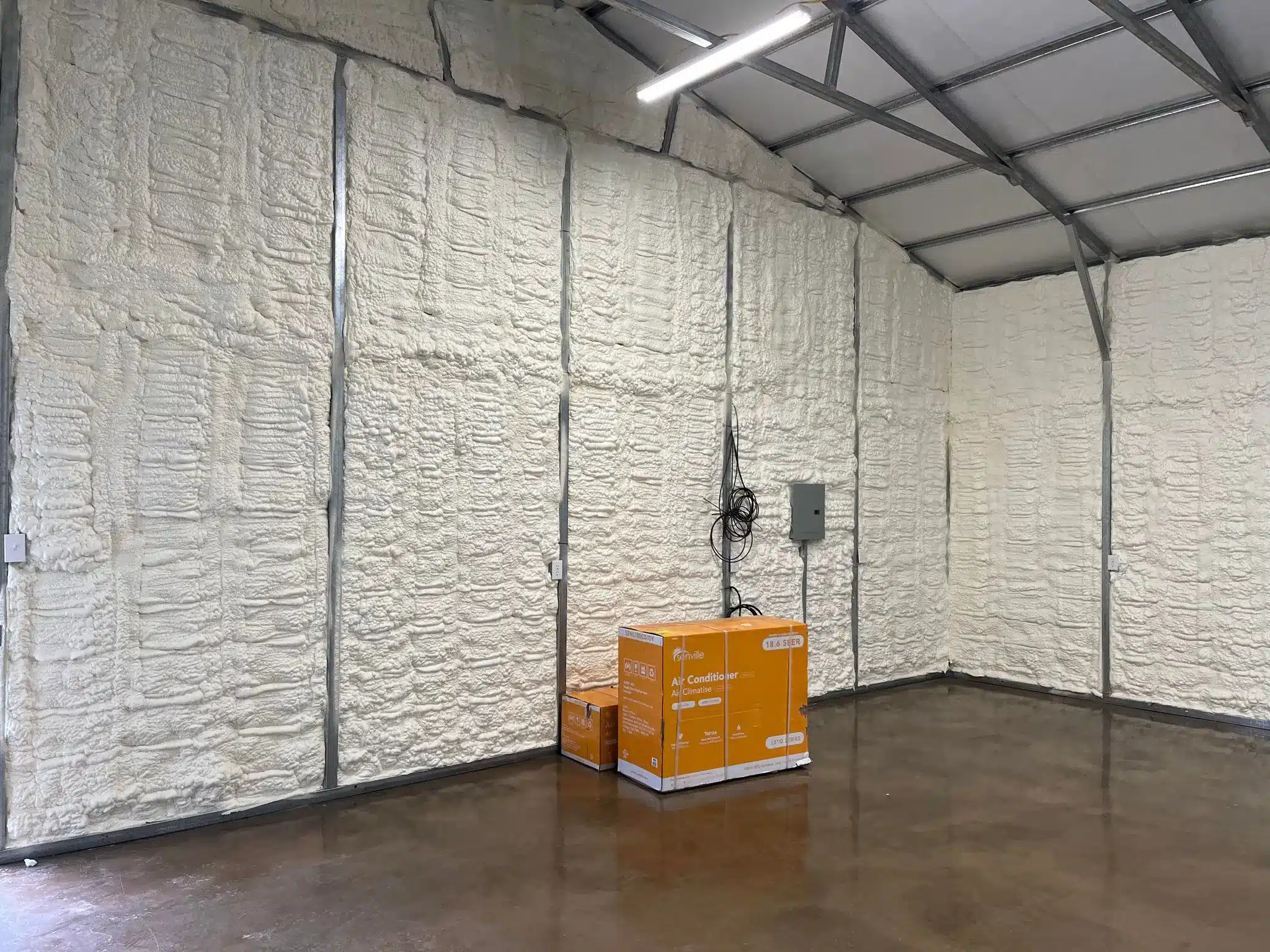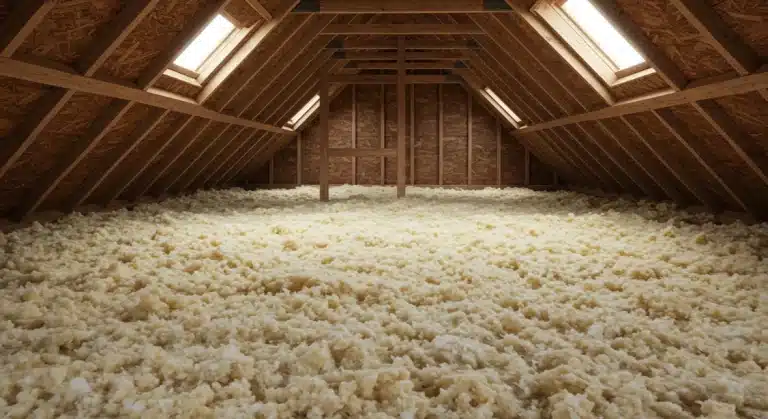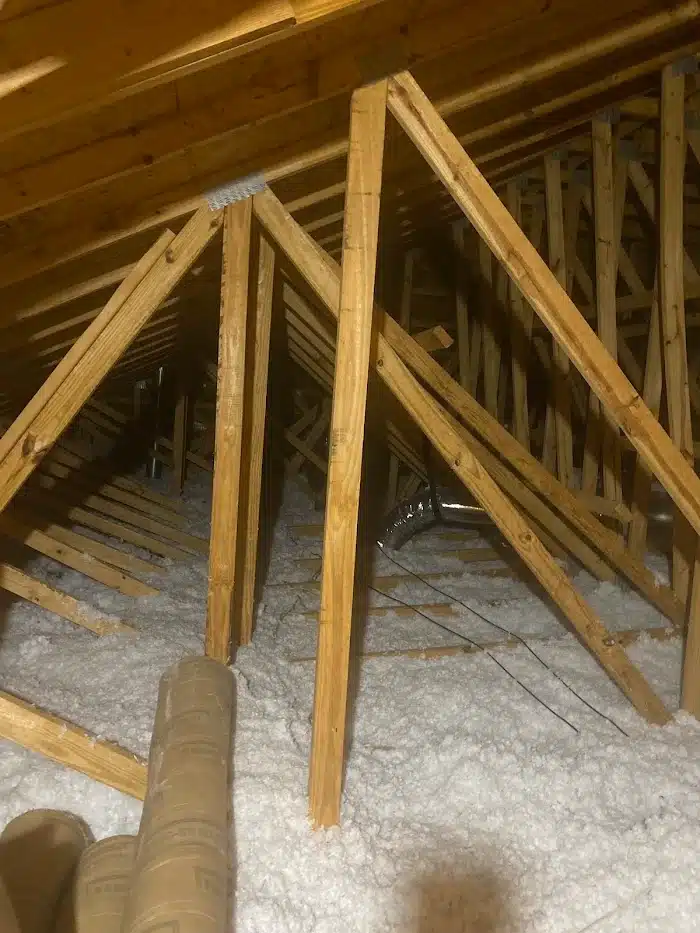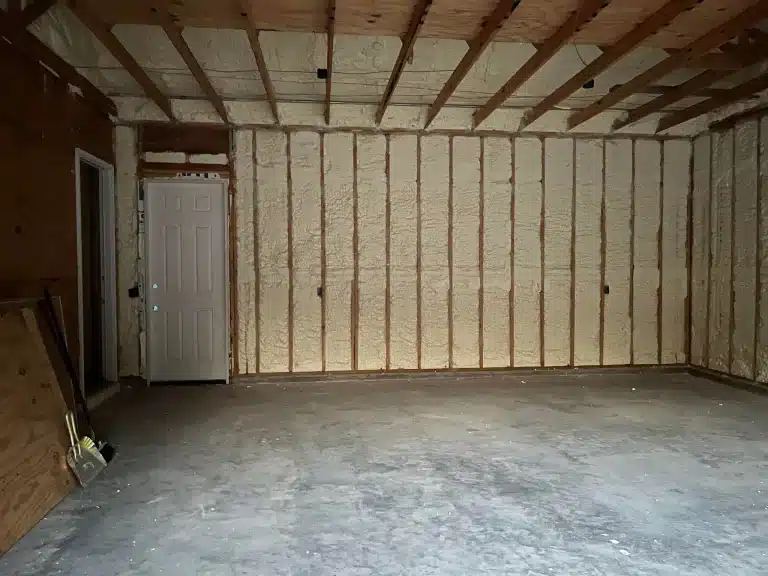Commercial spray foam insulation projects must comply with multiple building codes at the federal, state, and local levels. The most frequently enforced standards include the International Building Code (IBC), International Energy Conservation Code (IECC), and National Fire Protection Association (NFPA) regulations. Compliance requirements relate to fire resistance, thermal performance, air barrier continuity, and material-specific application methods.
Most jurisdictions reference a combination of IBC and IECC guidelines, updated every three years. Installation must meet standards for flame spread, smoke development, thermal resistance (R-value), and ignition barriers. Site-specific variables such as occupancy type, ceiling height, and fire sprinkler coverage affect the code interpretation.
Prestige Insulation Solutions follows all applicable codes during commercial installations and applies practical knowledge gained from large-scale regional projects to avoid code violations and rework.
Key Codes and Regulations Affecting Spray Foam Insulation
Primary Building Codes
| Code/Standard | Governing Body | Scope | Last Major Update |
|---|---|---|---|
| IBC (International Building Code) | International Code Council (ICC) | Structural integrity, fire safety, occupancy classification | 2021 |
| IECC (International Energy Conservation Code) | ICC | Energy efficiency, thermal performance | 2021 |
| NFPA 286 | National Fire Protection Association | Fire propagation in wall/ceiling systems | 2019 |
| ASTM E84 | ASTM International | Flame spread and smoke index | 2023 |
| UL 723 | Underwriters Laboratories | Fire hazard classification | 2022 |
Bonus Tip
Many inspectors require ASTM E84 documentation on-site. Always have printed spec sheets and test results ready.
Technical Performance Criteria
| Parameter | Requirement | Reference Standard |
|---|---|---|
| Flame Spread Index | < 25 | ASTM E84 |
| Smoke Development Index | < 450 | ASTM E84 |
| R-Value (Open Cell SPF) | ~3.6 per inch | IECC |
| R-Value (Closed Cell SPF) | ~6.0 per inch | IECC |
| Ignition Barrier | Required in most unoccupied spaces | IBC/NFPA 286 |
| Thermal Barrier | Required when foam is exposed to occupied areas | IBC/NFPA 286 |
Regional Considerations for Florida Projects
Florida’s hot-humid climate and hurricane risk make insulation code enforcement more stringent. The Florida Building Code (FBC), based on IBC and IECC with amendments, includes:
- Higher R-value requirements for roof assemblies
- Enhanced wind uplift performance for roof-applied foam
- Mandatory air barrier continuity in envelope assemblies
Bonus Tip: Closed-cell spray foam is often preferred in Florida for its moisture resistance and structural strength.
Comparison of Spray Foam vs Other Insulation for Commercial Code Compliance
| Insulation Type | Code Compliance Complexity | Fire Rating Challenges | R-Value Performance | Moisture Resistance |
|---|---|---|---|---|
| Spray Foam | Moderate | Requires ignition/thermal barrier | High | High |
| Blown-In | Low | Minimal | Medium | Low |
| Fiberglass Batts | Low | Easy compliance | Medium | Low |
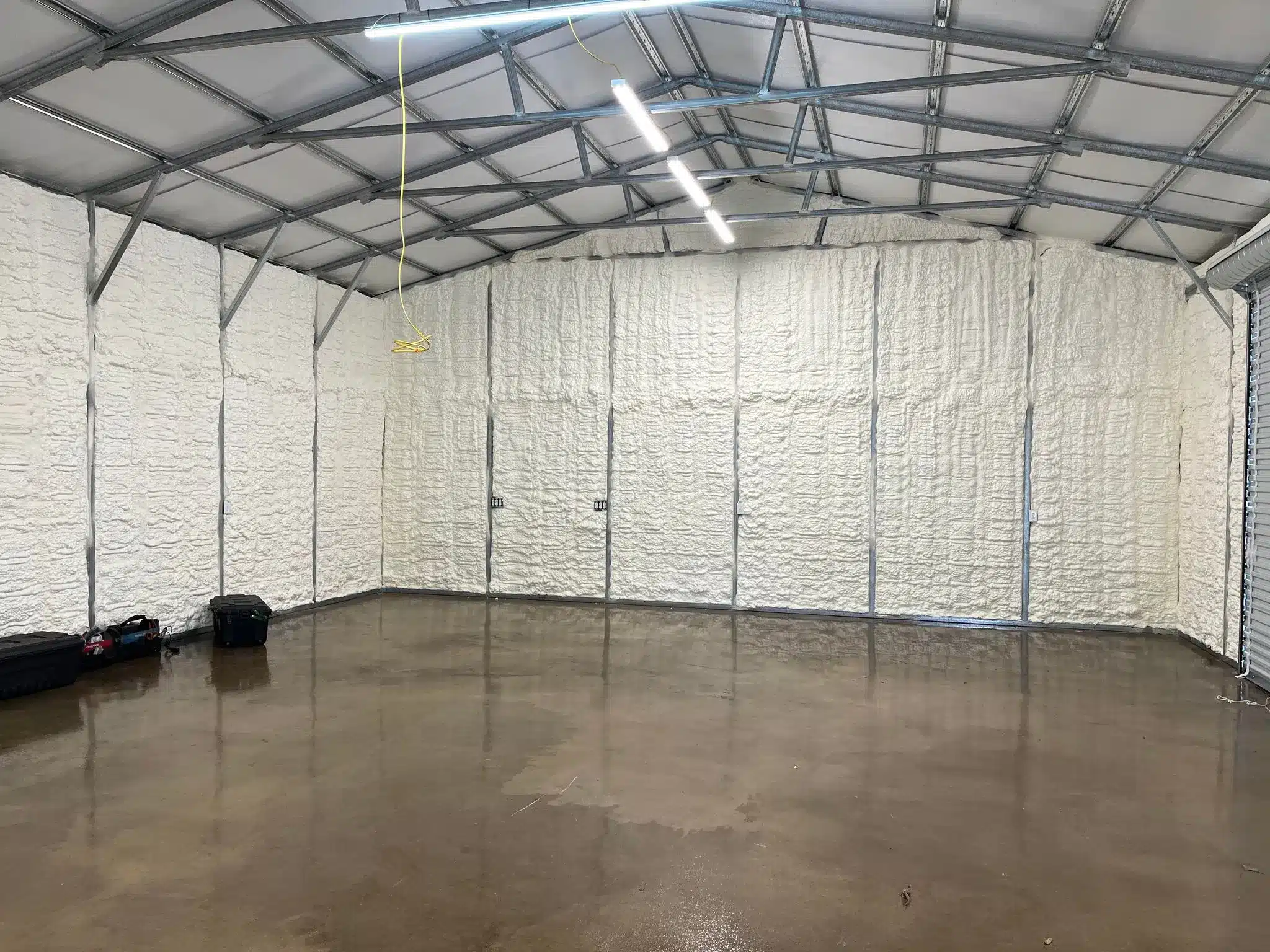
Things to Consider Before Making a Decision
- Building Type and Occupancy Classification: Determines fire barrier requirements and insulation placement rules.
- Roof Assembly Composition: Impacts R-value targets and vapor barrier needs.
- Fire Sprinkler Presence: Affects whether ignition barriers can be waived in some areas.
- Code Cycle in Your Jurisdiction: Some counties operate under older code cycles, requiring careful permit documentation.
- Inspector Experience: Requirements can vary based on interpretation, especially with thermal/ignition barriers.
Common Questions Before Installation
Do all areas require thermal or ignition barriers?
Most commercial spaces do, especially if foam is exposed or in unoccupied areas. Exceptions exist based on code and occupancy use.
Can spray foam be used in metal buildings?
Yes, with proper thermal breaks and fire barrier layers. Metal substrates must meet adhesion requirements.
What R-value is required for commercial roofs in Florida?
Typically R-30, depending on structure and HVAC zoning, per Florida Energy Code.
Is code approval required for every foam product?
Yes. Only tested and listed spray foam systems with recognized evaluation reports are accepted.
Related Services from Prestige Insulation Solutions
- Spray Foam Insulation: High-performance material meeting fire and energy codes when applied professionally.
- Roof Insulation: Closed-cell foam installations that satisfy FBC and wind uplift criteria.
- Insulation Removal: Safe extraction of outdated or non-compliant materials before reinstallation.
- Commercial Insulation: Full-scale service aligned with IBC, IECC, and local building codes.
Get Expert Insulation Guidance
For code-compliant commercial spray foam insulation, contact:
Prestige Insulation Solutions
Email: [email protected]
Phone: (850) 429-4969
Professional experience with diverse building types and up-to-date code knowledge ensures each project meets inspection standards without unnecessary delays or cost overruns.
Frequently Asked Questions
How often do building codes change?
Most codes are updated every three years. Check local adoption cycles for the latest requirements.
Can outdated insulation still pass inspection?
No. Installations must comply with the code version enforced at the time of the permit application.
Is third-party testing mandatory?
Not always, but materials must carry valid certification from recognized labs like UL or ICC-ES.
Does spray foam reduce HVAC load?
Yes. By creating an air seal and meeting R-value targets, it often enables downsized HVAC systems.
Are energy code violations subject to fines?
Yes. Non-compliance can delay occupancy permits and incur penalties from local authorities.


